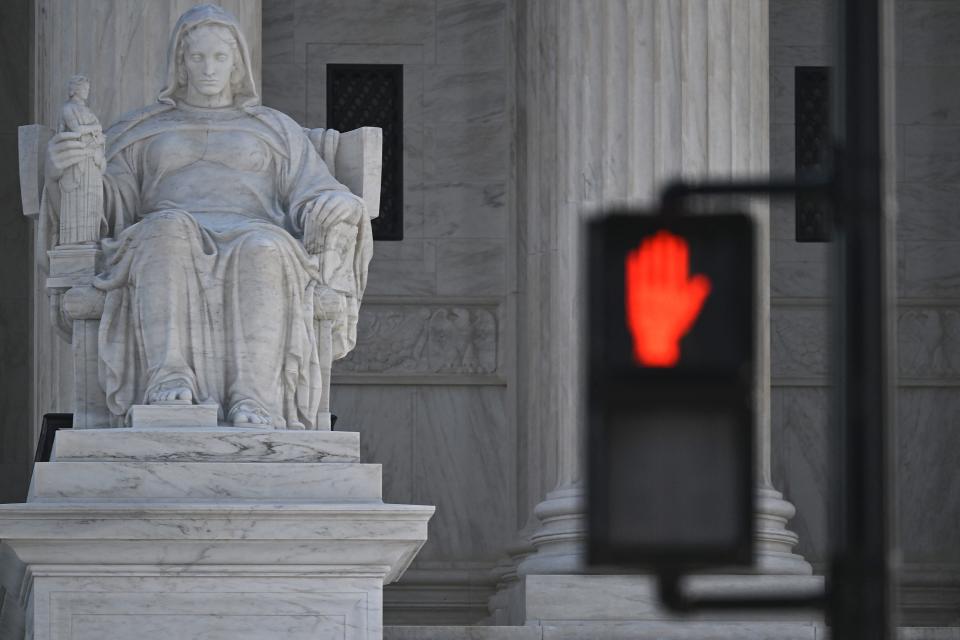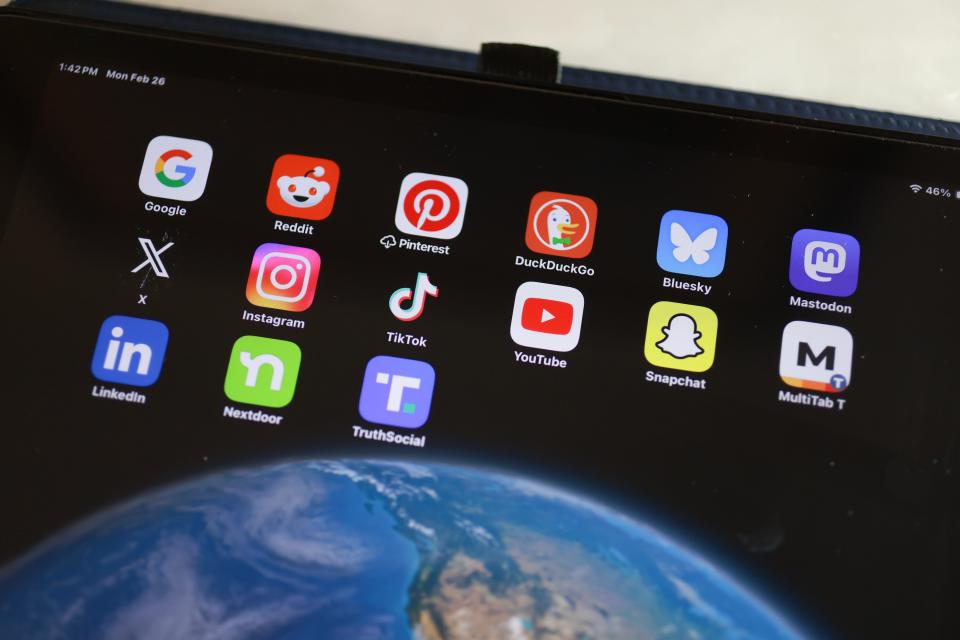Did Biden and Big Tech censor conservatives? Social media debate still rages
Two years ago, the Republican attorneys general of Louisiana and Missouri and a small number of social media users filed a lawsuit accusing the Biden administration officials of crossing the line when they leaned on social media platforms to suppress content they believed was false and dangerous, such as posts dealing with COVID-19 and election fraud.
The Supreme Court rejected that challenge in a 6-3 ruling Wednesday, saying the states and the users did not suffer a direct injury from the back-channel communications and did not have standing to sue, doing little to settle the long-running debate over whether Big Tech colludes with Democrats to censor conservative viewpoints.
Louisiana Attorney General Liz Murrill slammed the Supreme Court decision as a free pass to “the worst government coercion scheme in history.”
Missouri Attorney General Andrew Bailey pledged to continue the legal fight.
“The record is clear: the deep state pressured and coerced social media companies to take down truthful speech simply because it was conservative. Today’s ruling does not dispute that,” Bailey said in a statement.
Political commentator Dan Schnur says social media censorship will remain a mainstream powder keg unless former President Donald Trump wins reelection or the Supreme Court revisits the First Amendment issues.
“From a political standpoint, this doesn’t change anything at all,” said Schnur, who teaches at the University of California – Berkeley’s Institute of Governmental Studies and the University of Southern California’s Annenberg School of Communications. “There are certainly conservatives who will continue to fight on principle but, under a Trump administration, a lot of them would probably find other battles to weigh in on.”

Conservative complaints of online censorship still rage
From legislation in GOP-led statehouses to lawsuits brought by Trump, Murthy v. Missouri was the latest conservative grievance against the Biden administration and powerful technology companies.
Conservatives say social media platforms violate their First Amendment rights when their posts are labeled or removed or when they are banned for violating company policies. Social media companies say they don't target conservatives, only harmful speech that violates their rules.
Researchers say they’ve found no evidence to support GOP grievances that social media companies stifle conservative voices. If anything, they say, social media platforms amplify the voices of conservatives, shaping the worldviews of millions of voters.
The perception that tech companies and the billionaire CEOs who run them are biased against conservatives intensified as Trump made “social media abuses” a major plank of his administration and his 2020 reelection campaign.
After he lost the presidency, Trump vilified tech companies for labeling or removing posts that spread falsehoods about the outcome of the election. He will square off with Biden on Thursday in the first presidential debate of the 2024 election.
For some conservatives, the 2020 election proved Big Tech's ideological bias. Their complaints only got louder when major social media platforms banned Trump following the Jan. 6 attack on the Capitol and tech companies came under fire for throttling the spread of a New York Post article about Hunter Biden’s business dealings.

Supreme Court cases consider suppression of right-wing views
This term, the debate landed on the Supreme Court docket. One set of cases yet to be decided involves state laws in Florida and Texas that would restrict how social media companies police content on their platforms.
Those cases are “more directly relevant to the debate over whether social media chooses to censor conservative viewpoints,” said Duke Law School professor Stuart Benjamin.
At issue in Murthy v. Missouri was “jawboning,” the practice of trying to influence social media companies to delete a controversial post or change policies around public health misinformation.
The attorneys general of Missouri and Louisiana claim those attempts by the Biden administration violated the First Amendment. Among the communications were tense conversations the administration had with Facebook’s parent company Meta and X, formerly Twitter, over the coronavirus vaccine.
Federal judge Terry A. Doughty in the Western District of Louisiana sided with the plaintiffs, saying the pressure the Biden administration applied was “the most massive attack against free speech in United States’ history.”
Doughty, appointed by President Donald Trump, issued an injunction imposing unprecedented restrictions on how government officials speak about matters of public concern, address national security threats or relay public health information.
A three-judge panel of the U.S. Court of Appeals for the Fifth Circuit – two appointed by former President George W. Bush and one by Trump – narrowed the restrictions to a smaller number of government officials and agencies, but largely left the injunction intact.
The Biden administration filed an emergency application in September asking the Supreme Court to temporarily lift the injunction, saying that the government can urge companies to take action on issues of national security and public safety as long as those requests are not threats. The court granted the request and agreed to hear the case.
Supreme Court dissent claims free speech violations
Writing for the majority, Justice Amy Coney Barrett said the decisions by social media companies to take down content could not be directly traced back to government influence.
“While the record reflects that the Government defendants played a role in at least some of the platforms’ moderation choices, the evidence indicates that the platforms had independent incentives to moderate content and often exercised their own judgment,” she wrote.
Wednesday, Justice Samuel A. Alito Jr., joined by Justices Clarence Thomas and Neil M. Gorsuch, dissented.
"For months, high-ranking government officials placed unrelenting pressure on Facebook to suppress Americans’ free speech," Alito wrote.
The court is shirking its duty, he said, “and thus permits the successful campaign of coercion in this case to stand as an attractive model for future officials who want to control what the people say, hear and think.”
Contributing: Maureen Groppe, USA TODAY
This article originally appeared on USA TODAY: Supreme Court social media case doesn’t settle censorship debate


